GUEST POST by JANET WEIL
“Who should decide how best to use the resources of the earth? What are the most effective ways to build a more sustainable future?” – Adam Rome, “The Genius of Earth Day”
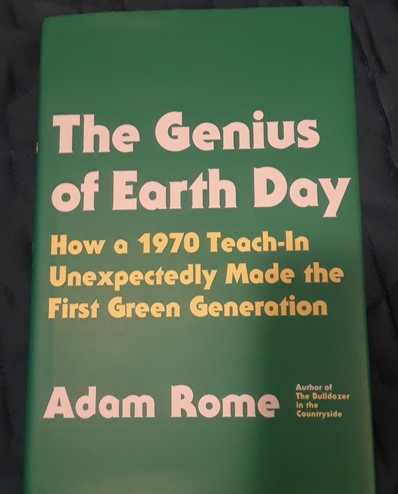
Three years ago, early in the global COVID pandemic, on the 50th anniversary of Earth Day, I wrote a guest blog post, a remembrance of my first Earth Day in 1970.
I now have three years’ worth of experience of Extinction Rebellion (XR) activism in Portland, Oregon, as editor of the XRPDX newsletter and blog, and as a participant in local actions, and on local and national zoom calls. While I deeply respect the caring, creative activists I work with, it has been a bitter three years. Horrific wildfires and smoke, the 2021 Heat Dome, and dozens of Portlanders dead from exposure to extreme weather events. Defeat after defeat in the climate justice struggle, too.
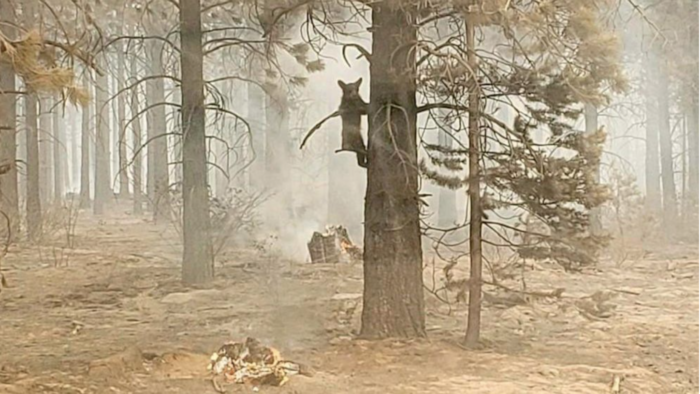
A bear cub clings to a tree as the Bootleg Fire burns in southern Oregon, July 18, 2021
Along the Willamette River on the northwest side of Portland, the Texas-based logistics corporation Zenith Energy receives 100-car BNSF trains loaded with fossil fuels at its transshipment platforms. The fuels are then piped to export ships on the river, despite Zenith never having a current air quality permit for their operations! A derailment and explosion, such as occurred in East Palestine, Ohio, could kill workers, contaminate the river, disrupt regional fuel supplies, and cause catastrophic air pollution.
Our years-long battle to Shut Down Zenith, documented in the film “Necessity II: Climate Justice and the Thin Green Line,” almost succeeded, until City of Portland officials made a sleazy backroom deal with Zenith, without prior public notice, let alone public testimony.
On the national level, the Biden Administration’s much-touted “Inflation Reduction Act,” though it has some good measures, also ties renewable energy developments to still MORE oil and gas drilling (read more here). Recently the administration has approved the Willow oil drilling project in Alaska, which flies in the face of the IPCC’s warning that there must be NO new production sites for oil, “natural” gas (methane), or coal.
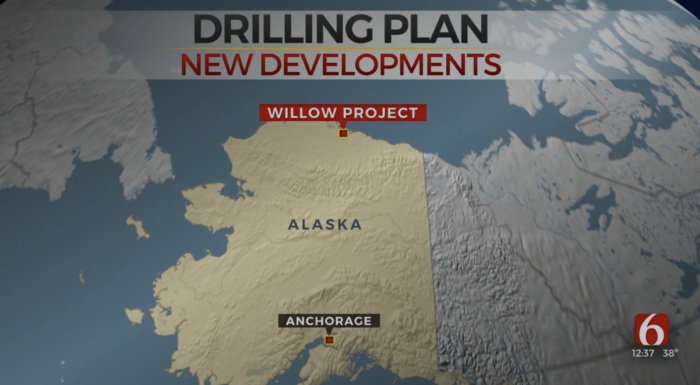
As a woman in my late 60s, I must face the bitter truth that the Earth (including humanity) is going to be further devastated by the now-accepted-as-inevitable 1.5C degree rise in global temperature. I don’t feel hopeless or like giving up; in fact, I feel more determined than ever to do what I can, while I still can.
But sometimes I get very tired of the ways that Earth Day, once the kickoff to a serious, successful environmental movement, has devolved into trivial, virtue-signaling projects and opportunities for corporate and military greenwashing. Empty of meaning.
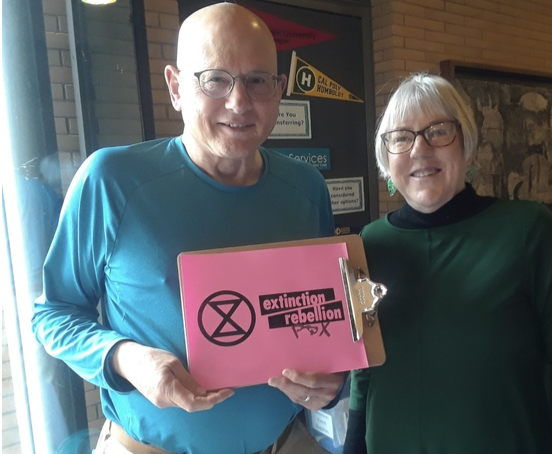
The author with an Extinction Rebellion colleague, retired geologist, Mark Darienzo,
My local XR group and our allies have pointedly NOT chosen April 22, Earth Day, as the day for any of our Spring Rebellion actions. The last week in April, we are focusing on:
-
fossil-fuel-infrastructure enabling big banks
-
the local transit agency that is threatening to raise fares
-
and, yet again, Zenith Energy’s facility on the riverfront
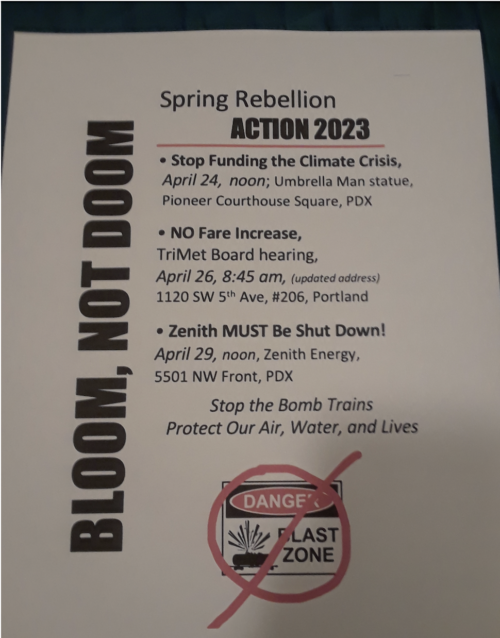
Every day is Earth Day.
Beyond April 22, please do something, in fact a series of somethings: read a book or a website, talk to a neighbor, call your member of Congress, go all-electric in your kitchen, write a letter to the editor, reduce your waste, change your bank, keep learning and taking action. Best of all: join a group. Individual actions are good, but real change comes from our collective action.
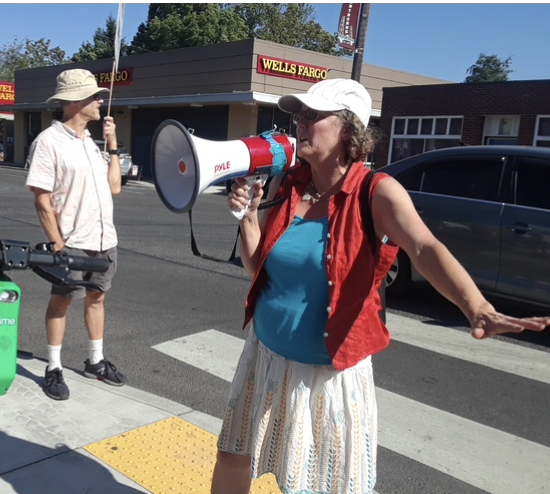
Diana Meisenhelter, Climate activist from Portland, Oregon
As old(er) women, we often have more economic and social power than young(er) folks. Let’s use it while we still can. We’re not “saving the Earth.” The Earth is not an object, separate from our daily concerns and political commitments. It is our common home. By taking sustained action, we are saving ourselves and the ones who come after us.
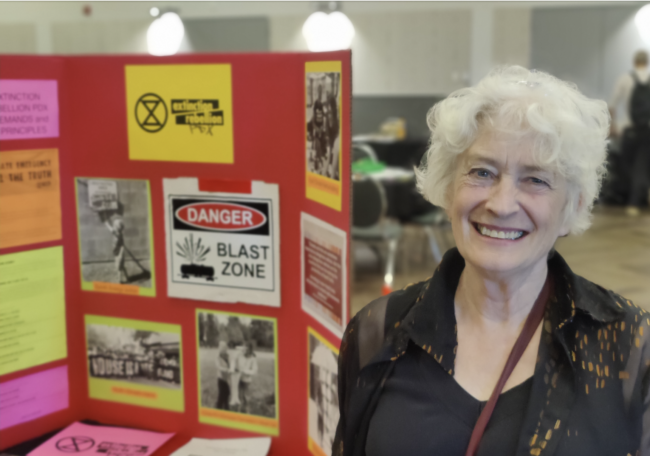
Pat K, climate activist from Portland, Oregon
Adam Rome’s questions in the epigraph are more relevant than ever. How we answer them will determine just how livable our only home, the Earth, will be in the coming decades.
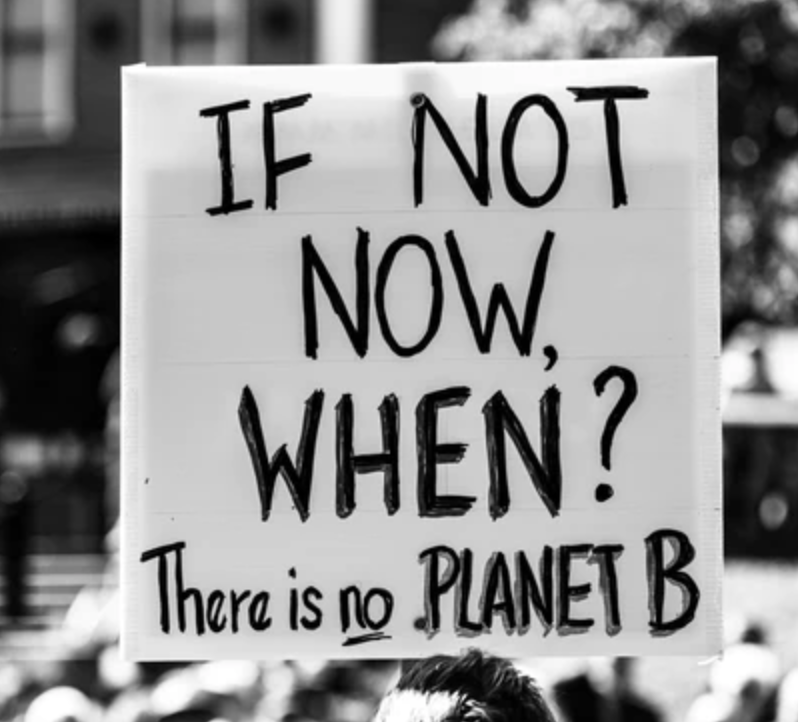
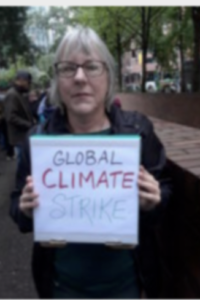 A retired ESL teacher and fired-up climate/eco activist, Janet Weil lives in Portland, Oregon with her husband. She enjoys spending time with her extended family, and in the great bookstores and libraries in the metro area. Janet is active on the Veterans For Peace Climate Crisis and Militarism Project, and when not engaged in activism, enjoys photography, poetry, and walks in the Japanese Garden.
A retired ESL teacher and fired-up climate/eco activist, Janet Weil lives in Portland, Oregon with her husband. She enjoys spending time with her extended family, and in the great bookstores and libraries in the metro area. Janet is active on the Veterans For Peace Climate Crisis and Militarism Project, and when not engaged in activism, enjoys photography, poetry, and walks in the Japanese Garden.








 A retired ESL teacher and fired-up climate/eco activist, Janet Weil lives in Portland, Oregon with her husband. She enjoys spending time with her extended family, and in the great bookstores and libraries in the metro area. Janet is active on the Veterans For Peace Climate Crisis and Militarism Project, and when not engaged in activism, enjoys photography, poetry, and walks in the Japanese Garden.
A retired ESL teacher and fired-up climate/eco activist, Janet Weil lives in Portland, Oregon with her husband. She enjoys spending time with her extended family, and in the great bookstores and libraries in the metro area. Janet is active on the Veterans For Peace Climate Crisis and Militarism Project, and when not engaged in activism, enjoys photography, poetry, and walks in the Japanese Garden.